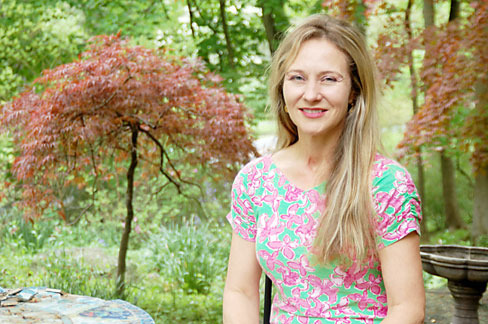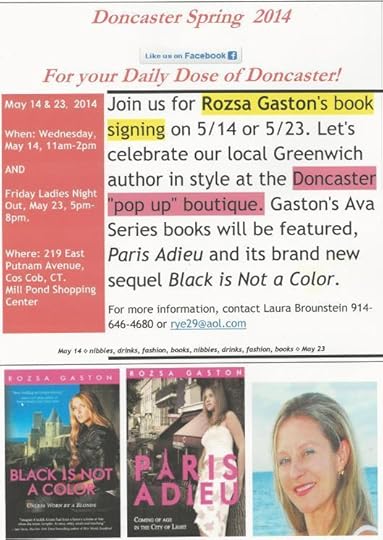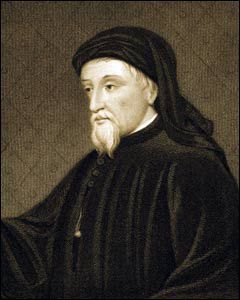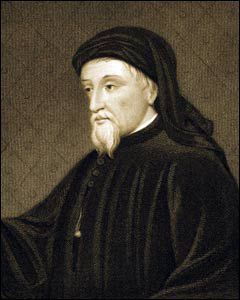Rozsa Gaston's Blog, page 3
December 16, 2014
“Find out who you are and choose the lifestyle that fits you.”—Budapest Romance by Rozsa Gaston
 Originally posted on Fine Wines Fine Quotes:
Originally posted on Fine Wines Fine Quotes:
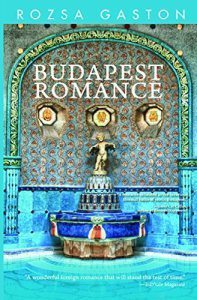
New release, Dec. 2, 2014
My latest novel Budapest Romance came out Dec. 2 out in paperback, ebook, and audiobook editions. This contemporary romance is the story of an American woman and a Dutch man who find each other in the thermal bath spas of Budapest.

Rudas Turkish Baths, Budapest
Suitable for readers age 15 and up, Kati and Jan’s tender love story begins in Budapest, develops in New York and Holland, then circles back to Hungary. Gift yourself or a friend with a trip to Budapest without the airfare this holiday season with Budapest Romance.

Romy Nordlinger

Széchenyi Baths, Budapest
Budapest Romance audiobook edition is narrated by actress Romy Nordlinger of All My Children and One Life to Live. Here’s what she says:
“You will not want Rozsa Gaston’s elegant and atmospheric Budapest Romance to end. This inspiring journey is a haunting story of true love…
View original 206 more words

November 4, 2014
The women he met were like castle walls with no windows. He couldn’t gain a foothold with any of them.���Rozsa Gaston, Running from Love
 Originally posted on Fine Wines Fine Quotes:
Originally posted on Fine Wines Fine Quotes:
���The women he met were like castle walls with no windows. He couldn���t gain a foothold with any of them.����� What was Jude���s problem?
 Excerpt fromRunning from Love:
Excerpt fromRunning from Love:
It was time to circulate.
At the next pause in Ginny���s anecdote, Jude excused himself, got up from the table and strolled outside. The deck of the Indian Harbor Yacht Club was chilly in the late September evening. An easterly breeze drifted in from Long Island Sound, causing the ladies to clutch their wraps and the men to drink more.
He peered across the water. Another seven miles beyond Great Captain���s Island lay his hometown of Oyster Bay, New York. It was too far away to see, but it was there: a mirror reflection of Greenwich, Long Island���style.
���Looking for something?��� a female voice asked.
Turning, he gazed into the most wide-set pair of blue eyes he���d ever seen. They���
View original 470 more words


The women he met were like castle walls with no windows. He couldn’t gain a foothold with any of them.—Rozsa Gaston, Running from Love
 Originally posted on Fine Wines Fine Quotes:
Originally posted on Fine Wines Fine Quotes:
“The women he met were like castle walls with no windows. He couldn’t gain a foothold with any of them.” What was Jude’s problem?
 Excerpt fromRunning from Love:
Excerpt fromRunning from Love:
It was time to circulate.
At the next pause in Ginny’s anecdote, Jude excused himself, got up from the table and strolled outside. The deck of the Indian Harbor Yacht Club was chilly in the late September evening. An easterly breeze drifted in from Long Island Sound, causing the ladies to clutch their wraps and the men to drink more.
He peered across the water. Another seven miles beyond Great Captain’s Island lay his hometown of Oyster Bay, New York. It was too far away to see, but it was there: a mirror reflection of Greenwich, Long Island–style.
“Looking for something?” a female voice asked.
Turning, he gazed into the most wide-set pair of blue eyes he’d ever seen. They…
View original 474 more words


May 23, 2014
Rozsa Gaston looks to her own life as genesis of new novel – Greenwich Post, May 23, 2014
By Ken Borsuk editor@greenwich-post.com on May 23, 2014 in Around Town, Community
Many authors, when looking for subjects of the most emotional value, turn inward to their own lives as a jumping off point. And that’s just what Greenwich’s Rozsa Gaston has done in her latest novel.
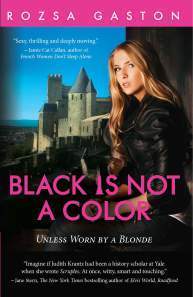 In Black Is Not A Color (Unless Worn By A Blonde), Ms. Gaston writes of a young woman reconnecting with her father after many years of estrangement. In this story, Ava Fodor is a woman with a thriving career and a budding new romance who was not raised by her father only to find herself having to take care of him over the course of the final year of his life. Despite not knowing her father, and having all the resentment and confusion that comes with that, Ava finds herself drawn to the eccentric Transylvanian/Hungarian man with his passion and zest for life even as it slips away.
In Black Is Not A Color (Unless Worn By A Blonde), Ms. Gaston writes of a young woman reconnecting with her father after many years of estrangement. In this story, Ava Fodor is a woman with a thriving career and a budding new romance who was not raised by her father only to find herself having to take care of him over the course of the final year of his life. Despite not knowing her father, and having all the resentment and confusion that comes with that, Ava finds herself drawn to the eccentric Transylvanian/Hungarian man with his passion and zest for life even as it slips away.
“It doesn’t start that way, but this is a book that ends up being about elder care,” Ms. Gaston told the Post in an interview last week. “That’s not a very sexy subject, but it is an extremely topical one and this is definitely a book for Baby Boomers to read and also for those younger than Baby Boomers who are going to be facing this down the line. This is about caring for an aging parent who didn’t raise you as a child. That changes the conversation. Her relationship with her father is she’s just discovering him for the first time as a 30-year-old woman and he’s from a completely different culture.”
Ms. Gaston indeed drew from her own relationship with her father for the book but only in a loose way. It might be the genesis for the story, but it quickly goes in its own direction.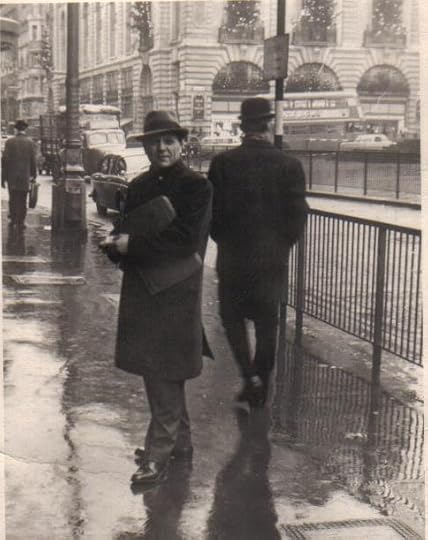
“My father was a Hungarian/Transylvanian refugee from the 1956 Hungarian uprising and I did not get to know him until I was older,” Ms. Gaston said. “I met him when I was about 16 and I wanted to work through feelings about our relationship. Writing the book ended up being a wonderful eye opener for me to realize how much my father actually did give me and how satisfying it was for me that when he did die I did the right thing. I might not have done the best job of doing the right thing, but I knew I did the right thing. I wanted to share that journey and writing this book allowed me to develop a deeper appreciation for my father.”
In the book, while Ava finds herself trying to relate to someone she doesn’t know and who comes from an entirely different cultural frame of mind than she has, she also has to struggle with the feelings of abandonment she has always had toward her father while finding herself drawn to him and his unique style. The more she learns about him the more she relates to her father which makes things even more difficult and that’s before life further complicates her romance…but to find out more you’re going to have to read the book which is available at Amazon.com and can also be ordered from Rozsagaston.com.
“The great thing about this book is that there’s progress between Ava and her father and the reason there’s progress is that her father is very forgiving,” Ms. Gaston said. “He didn’t parent her and she’s his only child so he didn’t parent anyone and he knows he was not a father at all. So he forgives her for whatever she says to him and how she acts toward him. He just wants to get to know her because he does love her and always has loved her.”
This book, which was first released in March, is a sequel to Paris Adieu, which had Ava living as an au pair coming of age in Paris. The romance between Ava and Pierre that began in the first book is a major theme in this new book. Ms. Gaston is quick to compare her lead character to widely known characters like Bridget Jones or Carrie Bradshaw in Sex and the City in that she’s no saint and can be a complicated person, but is someone readers want to root for.
“As soon as I finished Paris Adieu, I realized that Ava took on a life of her own and that I owed it to her to continue her story,” Ms. Gaston said. “And I owe it to her now to also continue her story through another book if not more.”
That book is still in the planning stages but Ms. Gaston is eager to get to work. A driven writer with several books to her name, Ms. Gaston said she loves to think ahead. 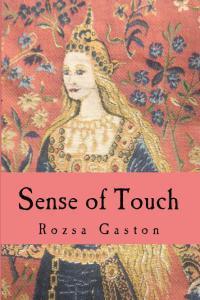 Her next book, Sense of Touch, is inspired by the famed The Lady and the Unicorn tapestries at the Cluny Museum in Paris. No one has ever definitively sourced who the women are in those tapestries, which date back to the 1490’s, and this story is a historical fiction exploring that mystery.
Her next book, Sense of Touch, is inspired by the famed The Lady and the Unicorn tapestries at the Cluny Museum in Paris. No one has ever definitively sourced who the women are in those tapestries, which date back to the 1490’s, and this story is a historical fiction exploring that mystery.
However that story might have to wait until 2015 as Ms. Gaston is planning on having her sequel to Black Is Not A Color done by the fall.
“I can’t stop and I don’t want to,” Ms. Gaston said. “The projects keep coming to me one after the other.”
But she will stop long enough to sign copies of her book this week. Tomorrow, May 23, from 5 to 8 p.m. at the Doncaster pop up boutique at 219 East Putnam Avenue in Cos Cob, Ms. Gaston will be on hand for a book signing. More information is available at Rozsagaston.com.


April 10, 2014
“Some man will fall in love with that lithe figure and the mystery of those elongated eyes.”~Colette, Claudine in Paris
 Travel to Paris this April without the airfare. Listen to a short audioclip from Paris Adieu here: https://soundcloud.com/audible/paris-adieu
Travel to Paris this April without the airfare. Listen to a short audioclip from Paris Adieu here: https://soundcloud.com/audible/paris-adieu
Paris Adieu out now in audiobook format with Audible.com. Also in paperback and eBook. Read. Review. Enjoy April in Paris with Paris Adieu this spring.
Warmly, Rozsa Gaston


April 7, 2014
“WHAN that Aprille with his shoures soote The droghte of Marche hath perced to the roote, And bathed every veyne in swich licour, Of which vertu engendred is the fleur.”���Chaucer, Prologue to Canterbury Tales
Party with Moms interviews Rozsa Gaston today as their Mom of the Week. Read here and if you enjoy, sign up for the Party with Moms weekly newsletter. http://partywithmoms.com/party-with-moms-interviews-rozsa-gaston-prolific-author/
 Once, just a few Aprils ago, I was a freshman in college and forced to memorize the first twelve lines of the prologue to Chaucer���s Canterbury Tales.
Once, just a few Aprils ago, I was a freshman in college and forced to memorize the first twelve lines of the prologue to Chaucer���s Canterbury Tales.
Imagine my delight when I realized that Chaucer���s Canterbury Tales were terribly tickly, not to mention positively ribald in parts! Not some old, moldy, medieval stanzas, but colorful, naughty and well worth the effort to make out the Olde English words.
Here���s first twelve lines of the most sensational poem written about April I���ve ever come across. Enjoy!
WHAN that Aprille with his shoures soote
The droghte of Marche hath perced to the roote,
And bathed every veyne in swich licour,
Of which vertu engendred is the fleur;
Whan Zephirus eek with his swete breeth
Inspired hath in every holt and heeth
The tendre croppes, and the yonge sonne
Hath in the Ram his halfe cours y-ronne,
And smale fowles maken melodye,
That slepen al the night with open ye,
So priketh hem nature in hir corages:
Than longen folk to goon on pilgrimages,
And palmers for to seken straunge strondes,
To ferne halwes, couthe in sondry londes;
And specially, from every shires ende
Of Engelond, to Caunterbury they wende,
The holy blisful martir for to seke,
That hem hath holpen, whan that they were seke.
Excerpt from Black is Not a Color
���Did you sleep?��� Narcisa whispered to me as the owner of the male voice headed toward the nearest silver-tray-carrying waiter to capture two glasses of white wine for us.
���Did I what?���
���Did you sleep?��� she asked again.
���Yes. I slept well, thank you��� I answered confusedly. Did I look tired to her?
���You don���t have to tell me who it was. But tell me���who was it?���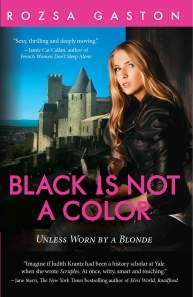
���Uh���it was me. I mean I slept well. Didn���t you?���
���Ohhh no. I didn���t sleep. I had friends who helped me,��� Narcisa whispered back, one eyebrow lifted significantly.
���Ohhh, I see. Uh���no I didn���t sleep. I���uh- took the tests last spring and they called me the beginning of August.��� Startled by the conversational curveball, I stepped back from Narcisa, still intrigued but alerted that I had no idea who I was dealing with. The U.N. was on international territory. American rules no longer applied.
���The tests. Everyone takes the tests. So what? How did you get the job?��� she pressed.
���Like I said, I took the tests. That was it. I waited, I gave up hope, then they called.��� I shrugged in what I hoped was the classic Gallic way, perfected by my recent stay in Paris.
Narcisa studied me as I spoke. It was like taking a lie-detector test. Suddenly I felt as if I���d slept even when I hadn���t.
���So you just took the tests and they called you. That was it?���
���Yes,��� I said, crisply. I tried to look like I wasn���t lying, even when I wasn���t. It was confusing talking to Narcisa.
Black is Not a Color �� 2014 by Rozsa Gaston


“WHAN that Aprille with his shoures soote The droghte of Marche hath perced to the roote, And bathed every veyne in swich licour, Of which vertu engendred is the fleur.”—Chaucer, Prologue to Canterbury Tales
Party with Moms interviews Rozsa Gaston today as their Mom of the Week. Read here and if you enjoy, sign up for the Party with Moms weekly newsletter. http://partywithmoms.com/party-with-moms-interviews-rozsa-gaston-prolific-author/
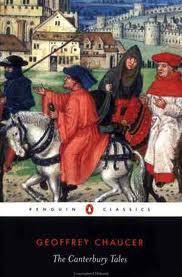 Once, just a few Aprils ago, I was a freshman in college and forced to memorize the first twelve lines of the prologue to Chaucer’s Canterbury Tales.
Once, just a few Aprils ago, I was a freshman in college and forced to memorize the first twelve lines of the prologue to Chaucer’s Canterbury Tales.
Imagine my delight when I realized that Chaucer’s Canterbury Tales were terribly tickly, not to mention positively ribald in parts! Not some old, moldy, medieval stanzas, but colorful, naughty and well worth the effort to make out the Olde English words.
Here’s first twelve lines of the most sensational poem written about April I’ve ever come across. Enjoy!
WHAN that Aprille with his shoures soote
The droghte of Marche hath perced to the roote,
And bathed every veyne in swich licour,
Of which vertu engendred is the fleur;
Whan Zephirus eek with his swete breeth
Inspired hath in every holt and heeth
The tendre croppes, and the yonge sonne
Hath in the Ram his halfe cours y-ronne,
And smale fowles maken melodye,
That slepen al the night with open ye,
So priketh hem nature in hir corages:
Than longen folk to goon on pilgrimages,
And palmers for to seken straunge strondes,
To ferne halwes, couthe in sondry londes;
And specially, from every shires ende
Of Engelond, to Caunterbury they wende,
The holy blisful martir for to seke,
That hem hath holpen, whan that they were seke.
Excerpt from Black is Not a Color
“Did you sleep?” Narcisa whispered to me as the owner of the male voice headed toward the nearest silver-tray-carrying waiter to capture two glasses of white wine for us.
“Did I what?”
“Did you sleep?” she asked again.
“Yes. I slept well, thank you” I answered confusedly. Did I look tired to her?
“You don’t have to tell me who it was. But tell me—who was it?”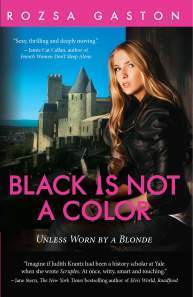
“Uh—it was me. I mean I slept well. Didn’t you?”
“Ohhh no. I didn’t sleep. I had friends who helped me,” Narcisa whispered back, one eyebrow lifted significantly.
“Ohhh, I see. Uh—no I didn’t sleep. I—uh- took the tests last spring and they called me the beginning of August.” Startled by the conversational curveball, I stepped back from Narcisa, still intrigued but alerted that I had no idea who I was dealing with. The U.N. was on international territory. American rules no longer applied.
“The tests. Everyone takes the tests. So what? How did you get the job?” she pressed.
“Like I said, I took the tests. That was it. I waited, I gave up hope, then they called.” I shrugged in what I hoped was the classic Gallic way, perfected by my recent stay in Paris.
Narcisa studied me as I spoke. It was like taking a lie-detector test. Suddenly I felt as if I’d slept even when I hadn’t.
“So you just took the tests and they called you. That was it?”
“Yes,” I said, crisply. I tried to look like I wasn’t lying, even when I wasn’t. It was confusing talking to Narcisa.
Black is Not a Color © 2014 by Rozsa Gaston


March 5, 2014
“The point in life…is to find equilibrium in what is inherently unstable.”~Pierre
The point in life…is to find equilibrium in what is inherently unstable.~Pierre Reverdy from Coco Chanel by Lisa Chaney
Who 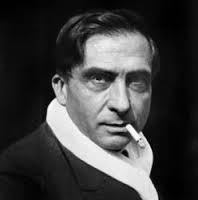 is Pierre Reverdy? An early twentieth century French poet and influencer of others. He made Arthur Rimbaud look like a choir boy.
is Pierre Reverdy? An early twentieth century French poet and influencer of others. He made Arthur Rimbaud look like a choir boy.
Reverdy was a dear friend of Gabrielle Coco Chanel. Handsome, independent, a trifle brutish, he appealed to the peasant woman buried deep inside the exquisite Chanel.
In other words, Chanel’s bad boy. Need I say more? 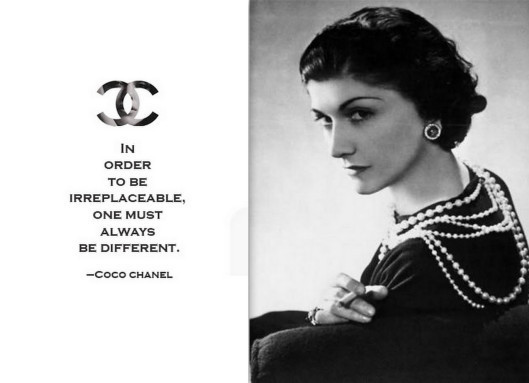
Find out more about bad boys in my latest book Black is Not a Color, sequel to Paris Adieu. Out in audiobook, it’s the story of Ava Fodor’s struggle to care for her father while cultivating her relationship with her new French boyfriend Pierre. Not a bad boy.  Too good for Ava, in her mind, in fact.
Too good for Ava, in her mind, in fact.
Can Ava measure up? First she needs to measure up to caring for her father, who didn’t raise her as a child. Not easy.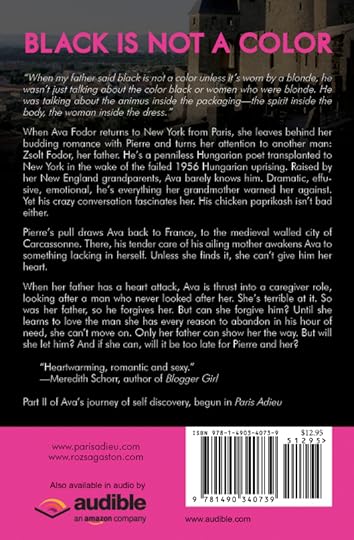
Ava is not the only grown up child of a parent who didn’t raise her. There are many men and women with such a tale out there. Coco Chanel was one. If Ava’s idol Chanel could get beyond a rough start in life, so can Ava. So can you.
Listen to Ava’s story in Black is Not a Color and take inspiration. Move out of the shadows of a less than ideal childhood and take your place in the sun. Coco Chanel is your lodestar. And Ava’s story in Black is Not a Color will help you find the hero within yourself.
Warmly,
Rozsa Gaston


February 27, 2014
“I’ve known perfectly well, for a long time, that I have an irrational heart. But knowing it doesn’t stop me in the least.”~Sidonie Gabrielle Colette
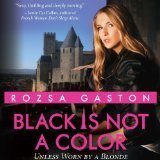 Darlings, my latest book is out. Black is Not a Color came out in audiobook format on Feb. 24, 2014. Here’s what they’re saying about it:
Darlings, my latest book is out. Black is Not a Color came out in audiobook format on Feb. 24, 2014. Here’s what they’re saying about it:
Praise for Black is Not a Color
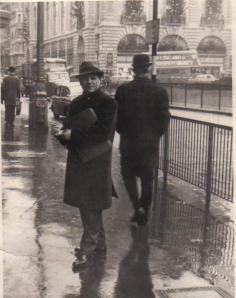 “Imagine if Judith Krantz had been a history scholar at Yale when she wrote Scruples. If this idea appeals, you are likely to be engaged and fascinated by Black Is Not A Color. The book is at once witty, smart and touching. It will make you want to devour chicken paprikash and then go shopping at a chic Manhattan boutique with your best girlfriend. A sensitive delineation of family dynamics and some wonderful insight into geopolitical geography.”
“Imagine if Judith Krantz had been a history scholar at Yale when she wrote Scruples. If this idea appeals, you are likely to be engaged and fascinated by Black Is Not A Color. The book is at once witty, smart and touching. It will make you want to devour chicken paprikash and then go shopping at a chic Manhattan boutique with your best girlfriend. A sensitive delineation of family dynamics and some wonderful insight into geopolitical geography.”
 —Jane Stern, author of The New York Times bestselling Elvis World, Roadfood, and many other books on food and popular culture
—Jane Stern, author of The New York Times bestselling Elvis World, Roadfood, and many other books on food and popular culture
“Rozsa Gaston takes us on another delicious adventure through France and beyond. Sexy, thrilling, and deeply moving, Black is Not a Color has everything you’d want in a novel, plus lots of spice, specifically paprika.”
— Jamie Cat Callan, author of French Women Don’t Sleep Alone, Bonjour Happiness! and Ooh La La!
“Readers will be delighted, intrigued and entertained by Black Is Not a Color. This enjoyable continuation of Ava’s worldly tale, begun in Paris Adieu, is full of vibrant characters with great chemistry. Gaston writes this story with intelligence, emotion, creativity and heart.”
—Laurie Weiner, Fairfield Public Library, Fairfield, CT
“Heartwarming, romantic and sexy, Black is Not a Color touches upon friendship, romantic relationships and the strength of familial bonds. This moving read for sophisticated readers evokes both a desire for European travel and a renewed appreciation for my hometown of New York City.”
— Meredith Schorr, author of Just Friends with Benefits and Blogger Girl
”An exotic, romantic adventure with a complex soul that connects us all. And the Hungarian thread that runs through it is just delicious. Big enough and bold enough for the big screen.”
—Atessa Helm, film producer, script and story consultant
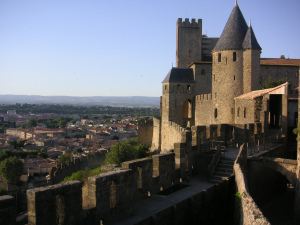 When Ava Fodor returns to New York from Paris, she leaves behind her budding romance with Pierre and turns her attention to another man: Zsolt Fodor, her father. He’s a penniless Hungarian poet transplanted to New York in the wake of the failed 1956 Hungarian uprising. Raised by her New England grandparents, Ava barely knows him. Dramatic, effusive, emotional, he’s everything her grandmother warned her against. Yet his crazy conversation fascinates her. His chicken paprikash isn’t bad either.
When Ava Fodor returns to New York from Paris, she leaves behind her budding romance with Pierre and turns her attention to another man: Zsolt Fodor, her father. He’s a penniless Hungarian poet transplanted to New York in the wake of the failed 1956 Hungarian uprising. Raised by her New England grandparents, Ava barely knows him. Dramatic, effusive, emotional, he’s everything her grandmother warned her against. Yet his crazy conversation fascinates her. His chicken paprikash isn’t bad either.
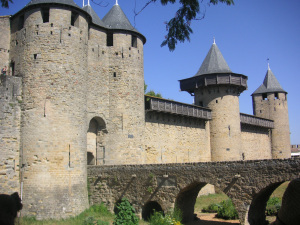 Pierre’s pull draws Ava back to France, to the medieval walled city of Carcassonne. There, his tender care of his ailing mother awakens Ava to something lacking in herself. Unless she finds it, she can’t give him her heart.
Pierre’s pull draws Ava back to France, to the medieval walled city of Carcassonne. There, his tender care of his ailing mother awakens Ava to something lacking in herself. Unless she finds it, she can’t give him her heart.
 When her father has a heart attack, Ava is thrust into a caregiver role, looking after a man who never looked after her. She’s terrible at it. So was her father, so he forgives her. But can she forgive him? Until she learns to love the man she has every reason to abandon in his hour of need, she can’t move on. Only her father can show her the way. But will she let him? And if she can, will it be too late for Pierre and her?
When her father has a heart attack, Ava is thrust into a caregiver role, looking after a man who never looked after her. She’s terrible at it. So was her father, so he forgives her. But can she forgive him? Until she learns to love the man she has every reason to abandon in his hour of need, she can’t move on. Only her father can show her the way. But will she let him? And if she can, will it be too late for Pierre and her?
Black is Not a Color is Part II of The Ava Series: Ava Fodor’s journey of self discovery, begun in Paris Adieu.


July 3, 2013
“At night we are all strangers, even to ourselves.” ���Alexander McCall Smith
 What are you running from? Are you running from love?
What are you running from? Are you running from love?
Join George Bodarky on Cityscape this Saturday, July 6, 7:30-8 am for a discussion of Running from Love: A Story for Runners and Lovers. WFUV’s Cityscape is a radio show on WFUV 90.7 FM and wfuv.org.
George Bodarky, host of Cityscape, will interview author Rozsa Gaston about running with the Van Cortlandt Track Club, running in Van Cortlandt Park, Bronx, and topics touched upon in her book Running from Love such as overcoming downhill running and relationship fears. 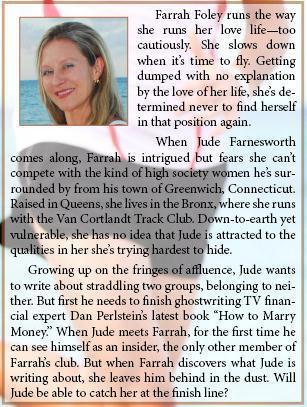 The discussion should be of interest to runners in general and specifically to runners on track clubs who have thought about or experienced dating a fellow member of their club. Tune in to 90.7 FM, WFUV, Fordham University’s alternative music�� station and learn how to stop running from�� love. I’ll be listening myself. Hope I learn something and I hope you do too.
The discussion should be of interest to runners in general and specifically to runners on track clubs who have thought about or experienced dating a fellow member of their club. Tune in to 90.7 FM, WFUV, Fordham University’s alternative music�� station and learn how to stop running from�� love. I’ll be listening myself. Hope I learn something and I hope you do too.
Warmly, Rozsa
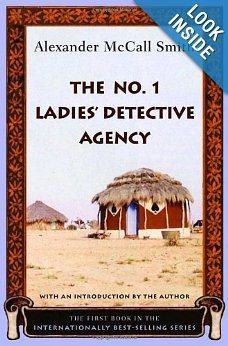 P.S. Who’s Alexander McCall Smith? A simply amazing writer and the author of The�� No. 1 Ladies’ Detective Agency, a fictitious tale of a female detective set in Botswana. I love this book!
P.S. Who’s Alexander McCall Smith? A simply amazing writer and the author of The�� No. 1 Ladies’ Detective Agency, a fictitious tale of a female detective set in Botswana. I love this book!



